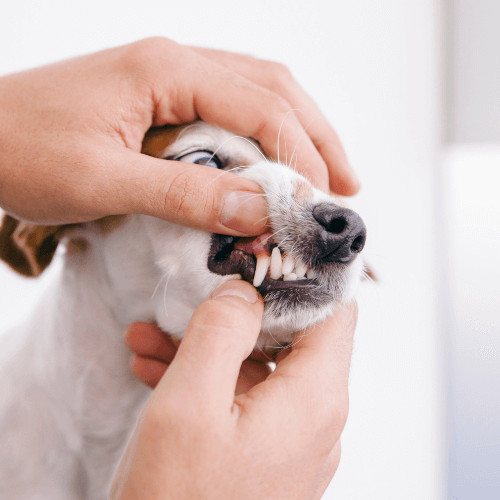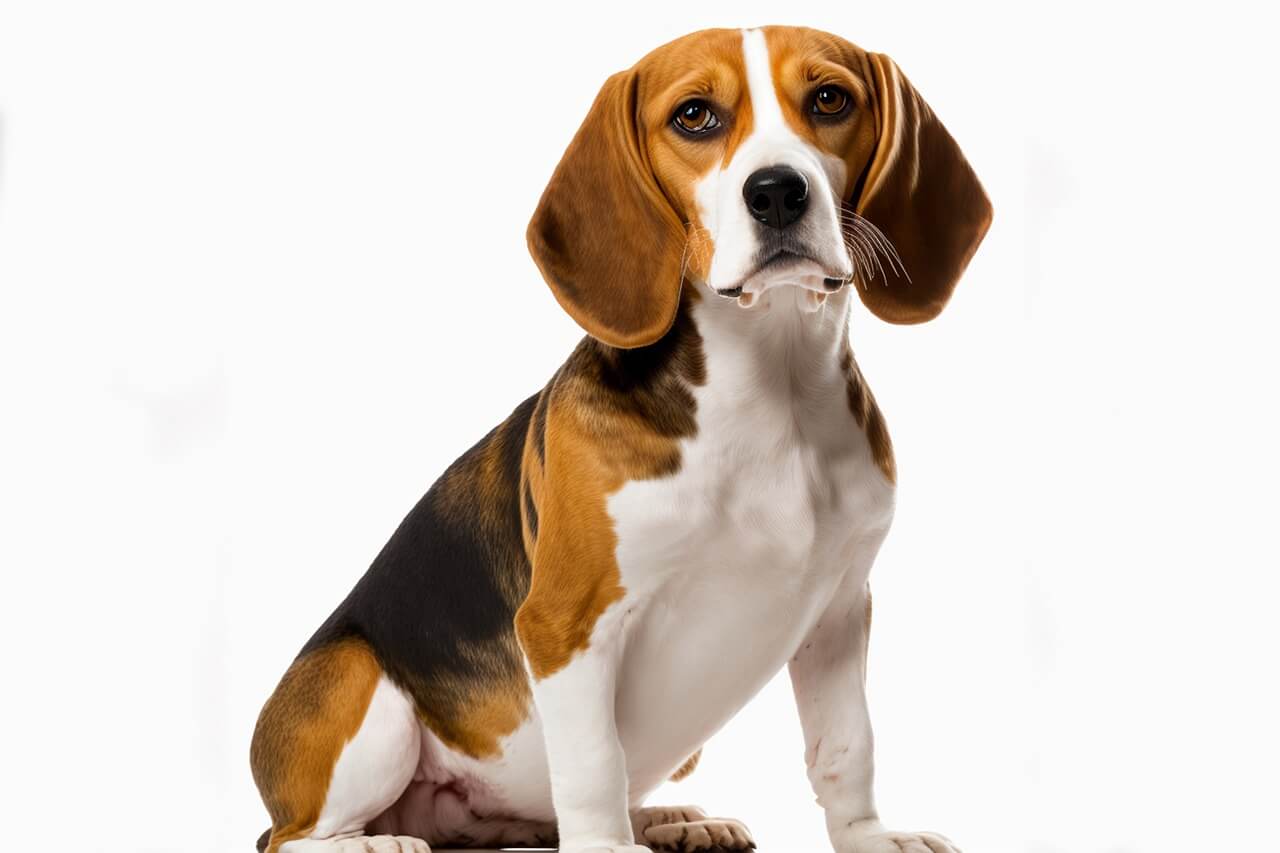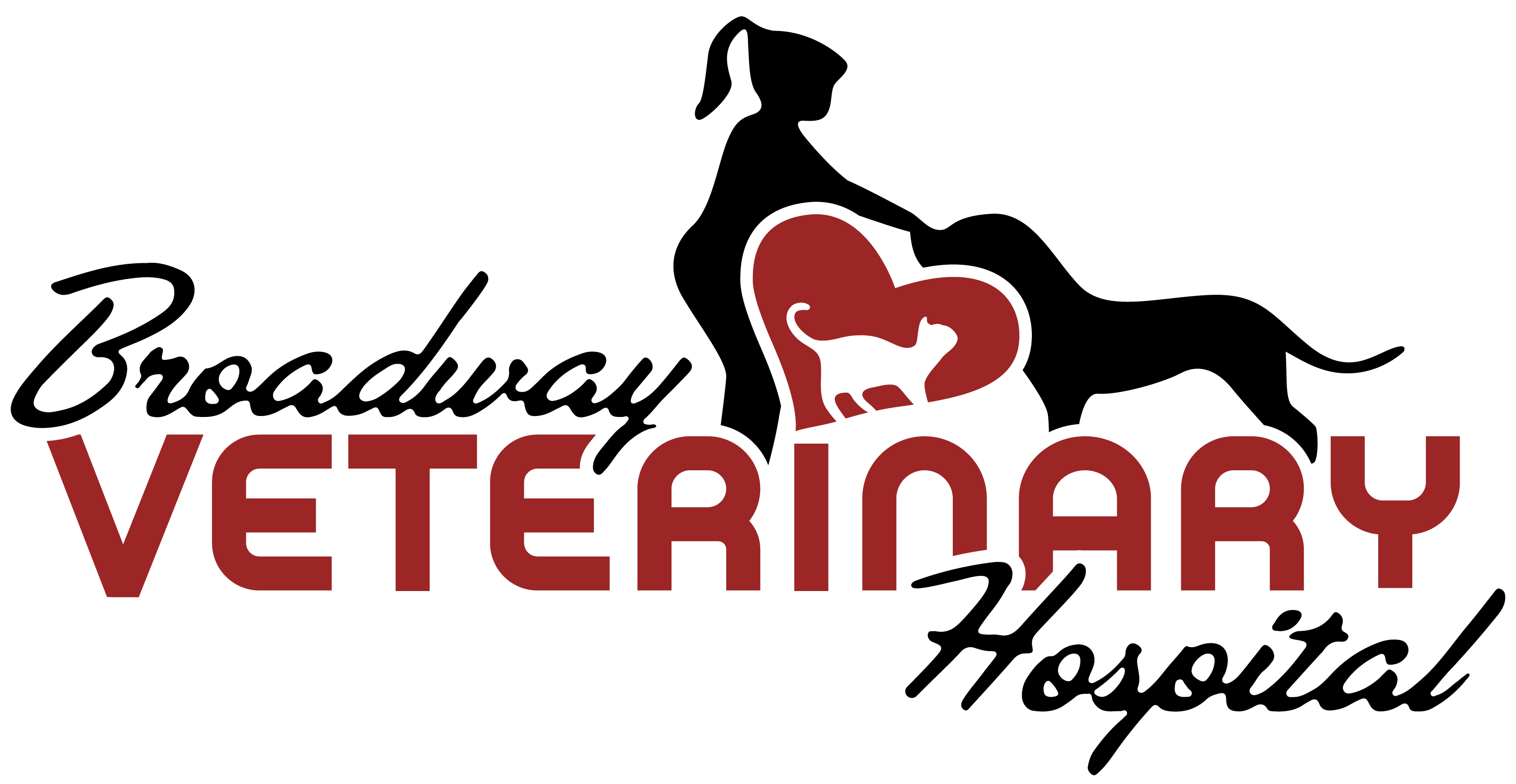Pet Dental
When was the last time your pet’s teeth were cleaned? According to the AVMA, pets who have never had a teeth cleaning have signs of dental disease by the time they are three years old. For that reason, Broadway Veterinary Hospital recommends that all pets have a yearly dental cleaning and oral examination.

Gum Disease in Dogs and Cats
Dogs and cats are prone to developing the same types of dental diseases and problems as humans, including gingivitis, periodontal disease, tooth decay, staining, and cavities. The process of dental decay and disease starts every time your pet eats. When your pet eats, food particles get on their teeth and gums. This fuels the bacteria in your pet’s mouth, causing an acid attack on the enamel of their teeth and creating a sticky, clear substance called plaque. If the plaque is left on teeth, it hardens into tartar. When plaque and tartar are left on your pet’s teeth for an extended period, it can lead to gingivitis, periodontal disease, cavities, and oral infections.


More about Pet Dentistry
The Hazards of Untreated Periodontal Disease in Pets
Signs of Dental Disease in Pets
When it comes to detecting potential oral health problems in pets, owners must be vigilant in noticing changes in behavior. This is because pets often do not act like they are in pain until the pain is severe. If you notice any of the signs below, it is important that you contact us to schedule a dental checkup, teeth cleaning, and/or gum disease treatment.
- Broken or Loose Teeth
- Discomfort While Eating
- Extremely bad Breath
- Purulent (pus) or Bloody Drool
- Red Gums
- Staining on the Teeth
- Swollen or Inflamed Gums
- Weight Loss or Loss of Appetite
Pet Dental Cleaning
Broadway Veterinary Hospital recommends that all dogs and cats receive their first dental checkup shortly after they are weaned and at least once a year for every year of their lives. Pet dental checkups include an examination of your pet’s head, neck, face, ears, and mouth in order to check for signs of health problems. Once the basic examination is complete, if your veterinarian believes your pet needs a dental cleaning, we will set up an appointment for your pet. The dental cleaning will completely clean all the plaque and tartar from your pet’s teeth and below the gum line. If they have a bad tooth, it can be removed at this time. Once your pet’s teeth are clean, we can give you tips and tricks to help you remove food particles and plaque at home between professional dental cleanings, like pet-safe toothpaste, toothbrushes, and dental chews.
To learn more about our veterinary dental services and how we can protect the health of your pet, call us at (507) 206-3313 today.
